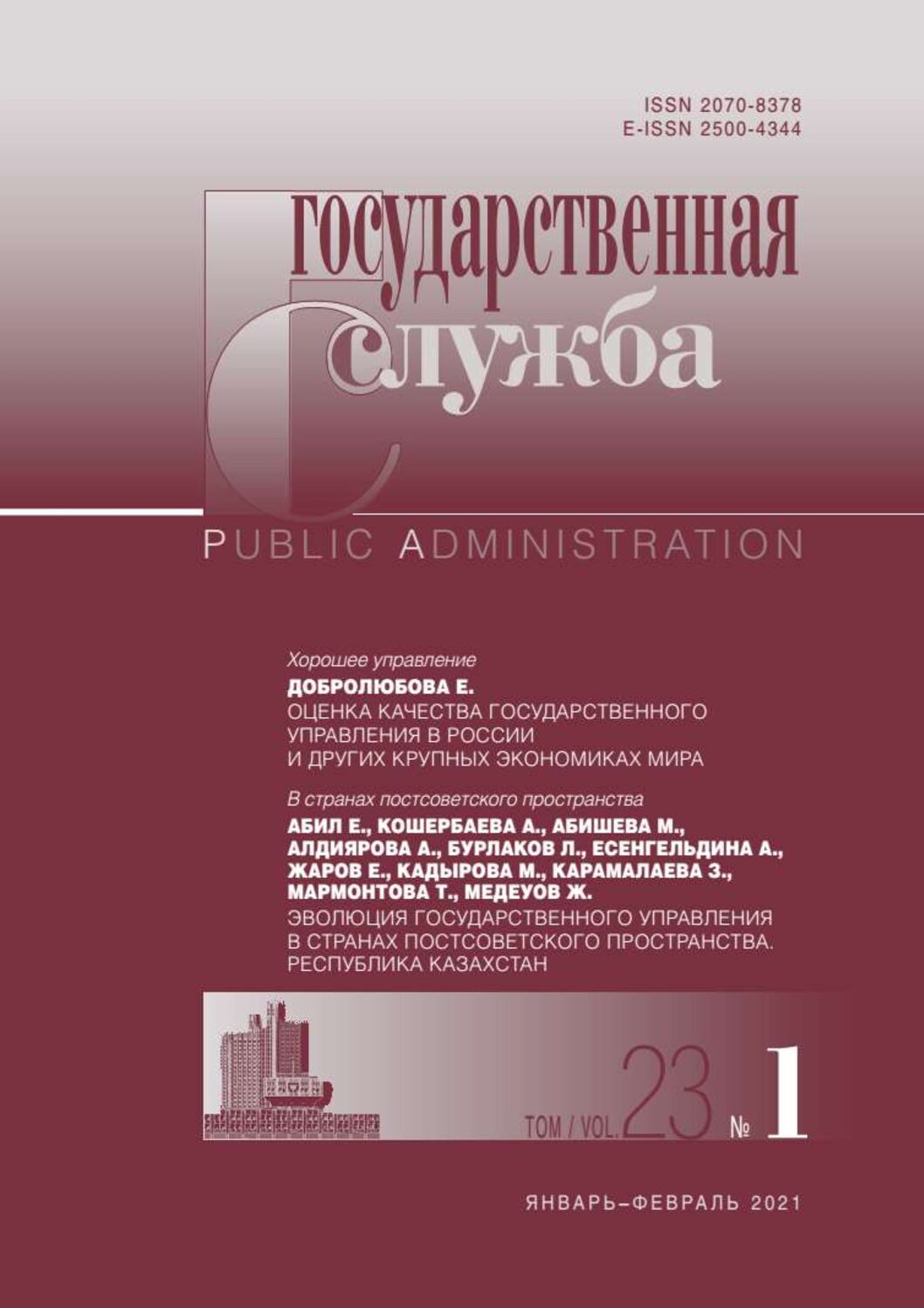Recommended link to article:
VALENTIN VASILIEVICH LETUNOVSKYа
аDirectorate of the President of the Russian Federation
DOI: 10.22394/2070-8378-2021-23-1-70-78
Abstract:
The article was prepared based on the materials of the meetings of the Sretensky club. The author uses the spheral approach as a theoretical and methodological basis for the article. The author offers his views on the prospects for human development, the evolution of the economy, and social relations. It is noted that at present, in the digital era, the development of society represents the transition of humanity to a qualitatively new formation, which, in turn, requires an active transformation of the goal-setting, taking into account the majority of opinions. The possibilities of digitalization confront humanity with a moral choice: the emergence of a “digital concentration camp” or digital social justice and the harmonious development of social relations when the idea of a fair society in its many forms will become decisive. The author believes that the goals for the development of all humanity should be of higher priority to any regional, state, group, or personal ambitions. It is required to ensure the social well-being and prosperity of all people, regardless of their race, nationality, confession, gender, age, and social status; also, the formation of a planetary civilization should take place when everyone is valuable and in demand for the creation of a long and happy life in harmony with nature and the universe. According to the author, a major anthropological transition should cause cardinal changes in all spheres of life, and the measure of these changes will be a person and his wellness. The economy should become “smart”, and the necessary governance will emerge over time; health care will be able to guarantee people decent health protection and strengthening of immunity; humanitarian and moral education will serve to foster dedication and responsibility, and science will become a powerful way of creative self-expression; the cultural preferences of people will also change. The author notes the special place for Russian people in the formation of a new stage for all humanity: the wisdom of Russian people historically and genetically embodies individual passionarity and patriotism not contradicting with the all-human principle.
Keywords:
future, humanity, world order, planetarism, communications, culture, education, human development, fair society
Received:
February 1, 2021
References:
Aristotle. Politics. Works in 4 volumes. Vol. 4. Moscow: Mysl’, 1983. In Russian
Bakunin M.A. God and the State. Moscow: Tipografiya Izdatel’skoy Komissii Moskovskogo Soveta Soldatskikh Deputatov, 1917. In Russian
Baumgart F. Between Reform and Reaction: Prussian School of Policy 1806-1859. Darmstadt: Wissenschaftliche Buchgesellschaft, 1990. In German
Dostoevsky F.M. The Brothers Karamazov. Moscow: Eksmo, 2020. In Russian
Dunaev M.M. Orthodoxy and Russian Literature. Moscow: Khristianskaya literatura, 1996. In Russian
Glushkov V.M. Fundamentals of Paperless Informatics. Moscow: Nauka, 1987. In Russian
Guo Xiao-li. The Transcendental World and the Real World: a Comparative Analysis of Cultural Thinking through the Prism of the Works of Dostoevsky, Confucius and Lao Tzu. Voprosy filosofii. 2013. No. 3. P. 103-111. In Russian
Jaspers K. The Meaning and Purpose of History. Moscow: Politizdat, 1991. In Russian
Life of St. Sergius of Radonezh. The text was prepared by D. M. Bulanina. Printed from the publication: «The life of God-bearing Father of our Sergius the Wonderworker and his praise, written by his disciple Epiphanius the Wise in the 15th century. As Archimandrite Leonid informs». Monuments of Ancient Writing and Art, Vol. 58. St. Petersburg, 1885. In Russian
Kitov A.I. Digital Electronic Machines. Moscow: Sovetskoye Radio, 1956. In Russian
Kropotkin P.A. Moral Principles of Anarchism. Moscow, 2012. In Russian
Karl Marx. Economic and Philosophical Manuscripts of 1844 and other early philosophical works. Moscow: Akademicheskiy proyekt, 2010. In Russian
Moiseev N.N. Civilization at the Turning Point. The Paths оf Russia. Moscow: RITS ISPI, 1996. In Russian
Monchrestien de, Antoine. A Treatise on Political Economy. Geneva: Libraire Droz S.A., 1999. In French
Oleskin V.A. Network Structures in Biosystems and Human Society. Moscow, 2017. In Russian
Sukachev V.N. Biogeocenosis as an Expression of the Interaction of Living and Inanimate Nature on the Earth’s Surface: the Correlation of the Concepts “Biogeocenosis”, “Ecosystem”, “Geographical Landscape” and “Facies”. In: Fundamentals of Forest Biogeocenology (ed. by V. N. Sukachev, N. V. Dylisa). Moscow: Nauka, 1964. In Russian
Philosophy of the Common Cause: Articles, Thoughts and Letters of Nikolai Fedorovich Fedorov. Published under the editorship of V.A. Kozhevnikov and N.P. Peterson. T. 1-2.1906-1913. Verny: tip. Semirechen. Obl. Pravl. Rossiyskaya gosudarstvennaya biblioteka (RGB). https://search.rsl.ru
Sorokin P. Person. Civilization. Society. Moscow: Politizdat, 1992. In Russian
Vernadsky V.I. Scientific Thought as a Planetary Phenomenon. Moscow: Nauka, 1991. In Russian
Articles in Open Access mode are published under the Creative Commons Attribution 4.0 International (CC BY) license.

